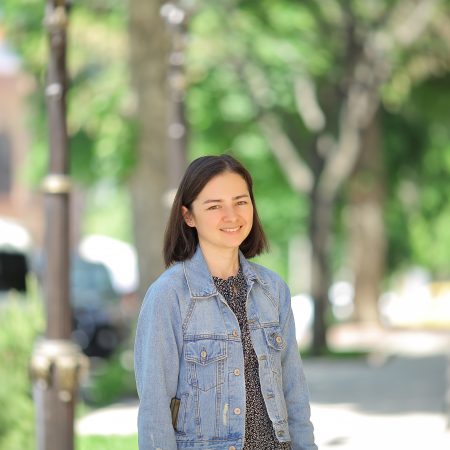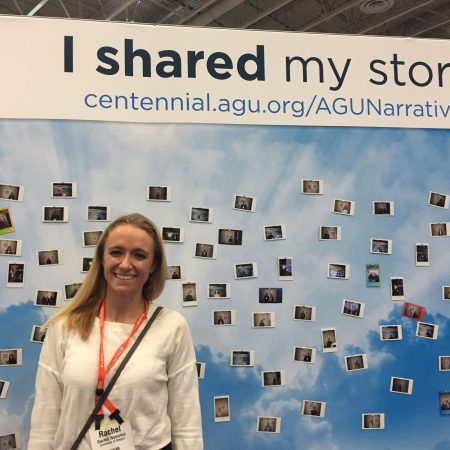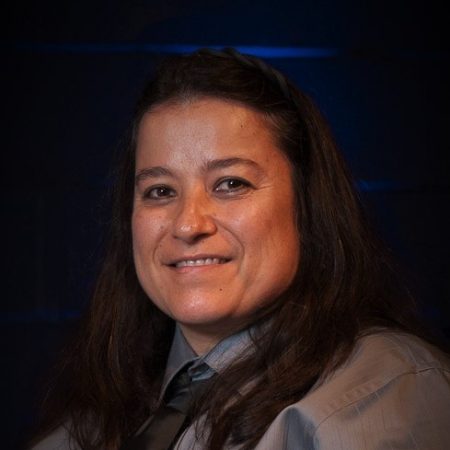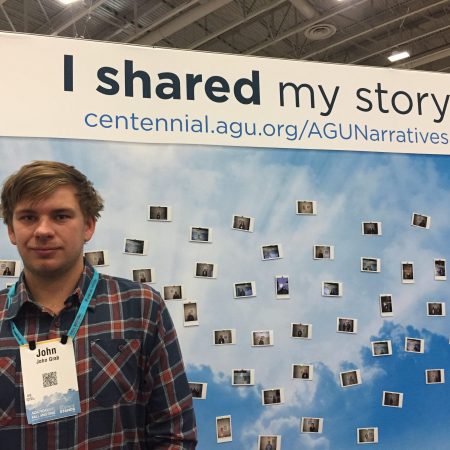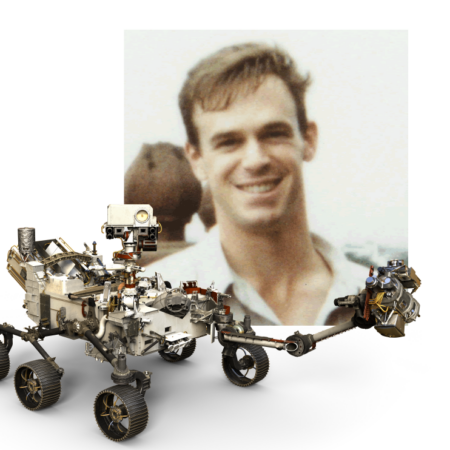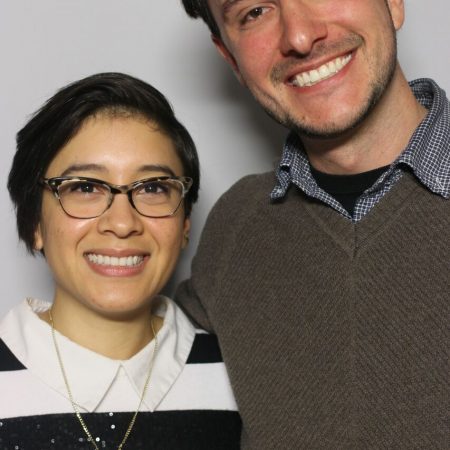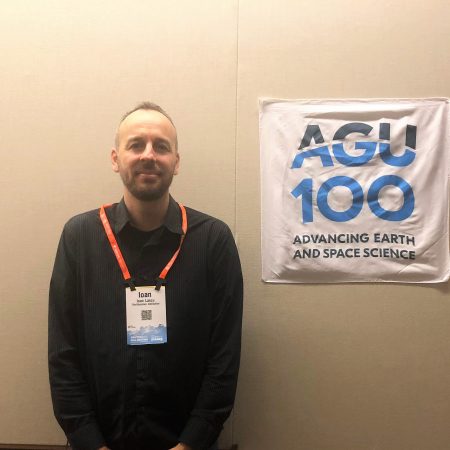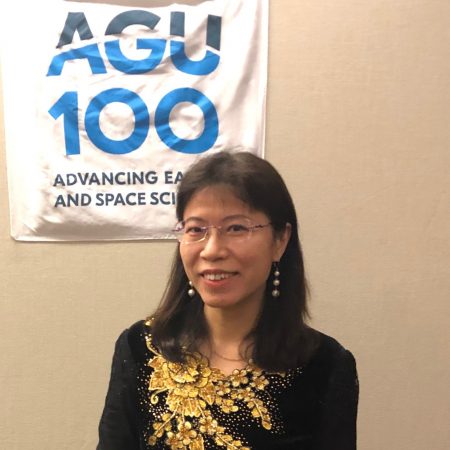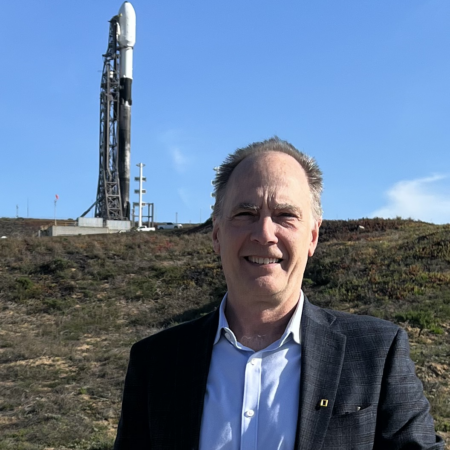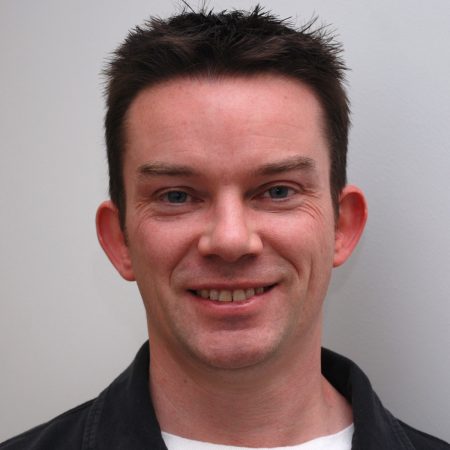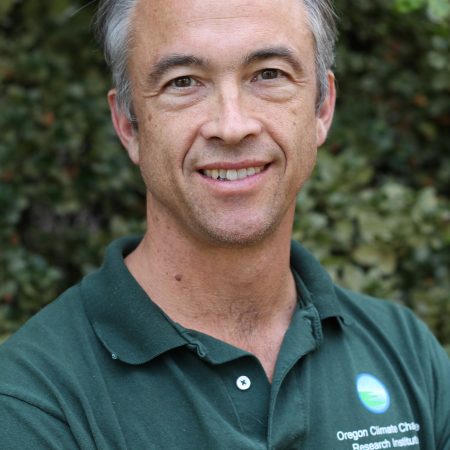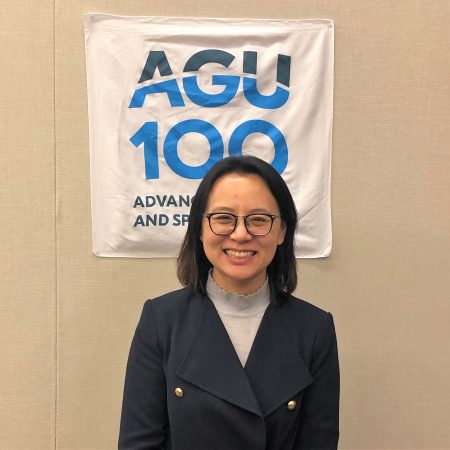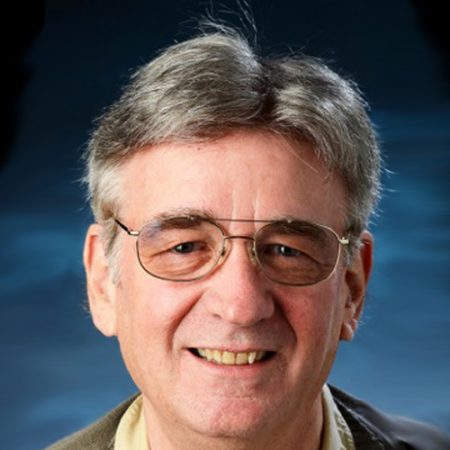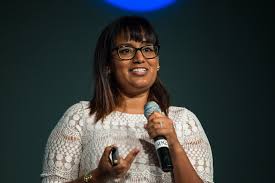Refine
Date Range Clear
Recorded by Clear
Keywords Clear
Partnerships Clear
- No matching terms.
Organizations Clear
- American Geophysical Union 82
- NASA 18
- National Aeronautics and Space Administration 9
- AGU 8
- The American Geophysical Union 5
- 15 more
Places Clear
Languages Clear
Initiatives Clear
- No matching terms.
Erica Bickford’s advice to early career scientists or students is to look outside academia and explore all the potential career options available to scientists. She is particularly aware of the importance of science in daily life and in the policy...
David Crisp, senior research scientist at NASA, recounted his adventures, from going from a physics education major who had a paper on Venus winds published by Carl Sagan to a doctoral student at Princeton to helping fix Hubble. He described...
Dr. Alex Lockwood is the project scientist on the science communication team for the James Webb Space Telescope at the Space Telescope Science Institute. While earning her Ph.D. in Planetary Astronomy and Science, Alex had the unique opportunity to star...
Tong Zhu atmospheric chemist and university professor shares his experiences studying air pollution and its impacts on human health. Reflecting on how past discoveries influence solutions and how those solutions impact government policy. He shares stories about his work for...
Jim Irons grew up in the 1960s and 1970s in Cleveland when environmental conservation was becoming more important for society, but it wasn’t until the Cuyahoga River in his hometown of Cleveland caught on fire in 1969 that his desire...
Imagine this upbringing: only child, suburbs of Maryland, daughter of a mathematician and a pastry chef. If you guessed that child would achieve a management role with NASA’s famed IceBridge2 mission, congratulations, you truly have exceptional foresight. Linette Boisvert McPartland...
AGU Virtual Poster Showcase Winner with Rushana Karimova, graduate student at York University in Toronto, Canada.
Rachel Hampton ended up in the geosciences because she couldn’t find the art history class she was looking for. From asking a TA if she could join him on fieldwork to doing her senior thesis on volcanoes without a professor...
Dana Bolles works for the Science Engagement and Partnerships Division at NASA Headquarters. She was first hired as a Payload Safety Engineer with the Kennedy Space Center and since then, has worked at four NASA centers in mission support roles...
John Booker Grab grew up in New Mexico and remembers, at the age of 8, running out the back door into the Santa Fe National Forest to go and collect fossils. He then went on to study at Montana State...
Don Boesch shares his story in science policy with Eric Davidson. Bringing together his experiences from marches on the Vietnam war to his recent march experiences in 2017 for science and climate. Reflecting on the importance of these events and...
Roberta Rudnick, Professor at University of California Santa Barbara, was captivated by science from a young age, witnessing the Mt. Saint Helens eruption while in college, and traveling the globe to understand plate tectonics, and how and why continents form...
Adrian Brown is the deputy scientist on the Mars 2020 Rover mission at NASA Headquarters in Washington, D.C.. Adrian uses his background in geology to explore Mars via the Mars Rover, living out his childhood fascination with the planets. He...
Geophysicist Dusty Schroeder and University of Colorado engineering student Kathy Vega talk about their first-to-college experiences and their field of radioglaciology and cryospheric science. Dusty shares his story of how one science lecture changed his whole life's trajection. (Recorded 14...
In begin in 1979, when Margaret Kivelson, UCLA, was part one of three women presenting a talk in which Fran Bagenal, University of Colorado Boulder, was sitting in the audience. They have been space scientists and collaborators for many years...
Ioan Lascu, research geologist at the Smithsonian Museum of Natural History, shares stories of his work studying minerals and rock magnetism. What do bacteria affect magnetism? What can we learn from stalagmites and stalactites? Why has there been in a...
Mei Zheng studies and teaches atmospheric science at Peking University. She’s passionate about training the next generation of scientists, and ensuring that everyone has access to clean air. “A teacher’s job is to encourage, inspire, and challenge students to do...
Duane Waliser’s path in science meandered from an Oregon apple farm to a UCSD Oceanography institute to NASA’s Jet Propulsion Laboratory, where he now serves as the Chief Scientist for the Earth Science and Technology Directorate. At JPL, Duane helps...
Conor Nixon, a space scientist at NASA--Goddard Space Flight Center, discusses his work studying the outer planets. Watching the Cosmos show growing up interested him in the solar system and he's been studying the outer planets most of his life....
Is it a good time to be a climate scientist? Yes, says Phil Mote, Director Oregon Climate Change Research Institute at Oregon State University. Predictions over the past 40 years are coming true and while some look at that with...
From her teaching position at National Taiwan University, Haojia Abby Run is studying nitrogen-related pollution by fossil fuels and fertilizers and warning people in Taiwan of its damage to the ocean. A female Asian oceanographer, who grew up in China’s...
Michael King is a Senior Research Associate in the Laboratory for Atmospheric and Space Physics at the University of Colorado. He previously worked at NASA for 3 decades in a variety of roles, including Senior Project Scientist of NASA’s Earth...
AGU Virtual Poster Showcase Winner Interview with Trista McKenzie, doctorate student, at the University of Hawaii, Manoa
Emily Schaller, project manager at NASA's National Suborbital Research Center at Ames, discusses her Ph.D. work studying the clouds on Titan and her work as a science and education. She recalled how as a young child, she would study illustrations...
Dr. Gupta was unsure of what she wanted to work on after finishing medical school, but she found her calling and is now the Open Innovation and Community Applications manager at NASA headquarters. Listen to Dr. Gupta talk about her...
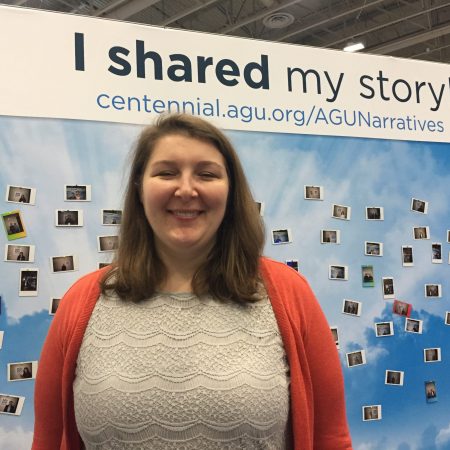

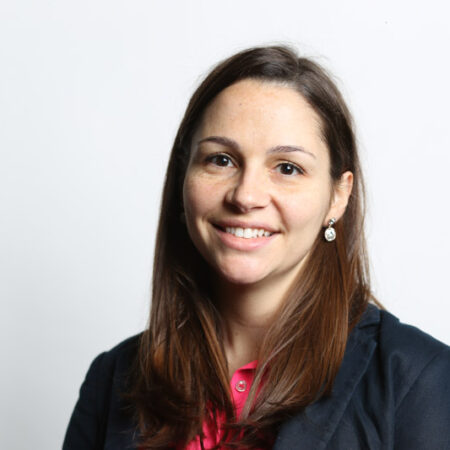
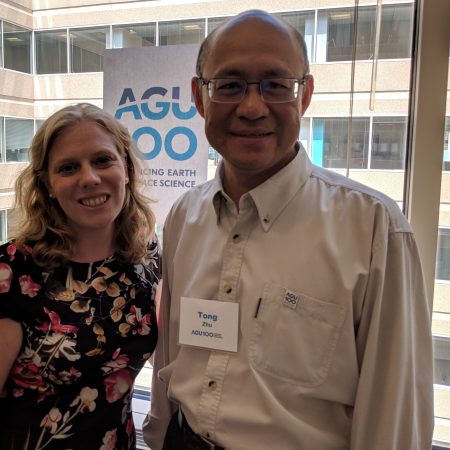
!["AGU is interdisciplinary, [it] helps breaks down the disciplinary stovepipe we often get into." an interview with Jim Irons](https://archive.storycorps.org/uploads/2019/02/181212_Irons-450x450.jpg)

